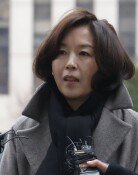[Opinion] Japans Dokdo Conscience
[Opinion] Japans Dokdo Conscience
Posted June. 01, 2005 06:51,
The Financial Times recently described Japan as a sorry state. Japan has repeatedly offered apologies to Korea and China. However, repeated absurd remarks by the countrys politicians have watered down the apologies made by its emperor and prime ministers, giving the impression that Japan believes that it has nothing to be sorry for, despite its apologies. Fortunately, however, there are still conscientious academics in the country.
Some Japanese academics have made it clear that the Dokdo islets belong to Korea. Prominent among them is Kazuo Hori, a former Kyoto University professor of economics. Dokdo appeared in Korean documents 200 years before it did in Japanese documents. The Edo government acknowledged that the islets were part of Korea in 1696 when it banned passage to Ulleungdo and Dokdo. The records kept by Japanese fishermen in Shimane Prefecture that show Dokdo owned by Japan have nothing to do with territorial sovereignty. He points out that Japan makes inconsistent arguments, changing its position from Dokdo is part of Japan, to Japan occupied the islets because they were not owned by any country.
Seitzu Naito, a professor emeritus of Shimane University, shares this view. He wrote a column saying, Korea is correct, even when Japans Shimane Prefecture was gripped by the Dokdo issue. He also said, There are numerous Japanese sources that date to before the Second World War that support that the islets were owned by Korea. Furthermore, he maintains that Shimane fishermen in the Edo period also recognized the islets as Korean territory after the ban on passage to the islets was announced. He makes it clear that Japan never claimed ownership over Dokdo before the 1905 announcement.
Professor Soji Takasaki, a Japanese modern and recent history researcher of Tsudajuku University, even argues, It is desirable for Japan to hand over Dokdo to Korea. It was unfair that Japan did not notify Korea of the integration of the islets into Shimane Prefecture. He points out that the story of a Japanese national named Nakai who moved to Dokdo, upon which Japans claim of ownership over the islets according to international law rests, is fictional.
It appears that there are still voices of conscience, even in the sorry state. However, it is disturbing that such voices of conscience are increasingly being buried by nationalism.
Kim Chung-sik, Editorial Writer, skim@donga.com







